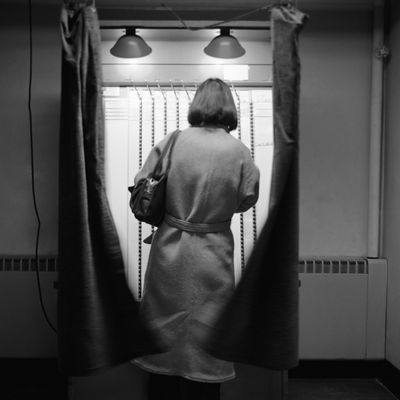
The line between who you are and what you do can be a blurry, complicated thing: On the one hand, people generally feel more fulfilled when they view their work as a personal calling, rather than just a job; on the other hand, some argue that an effective way to boost your own happiness is to find a passion outside of work. And then there’s the question of your work self versus your real self: By some accounts, it can take up to a year, or even longer, before you start feeling like your authentic self at the office, creating a personal/professional division that can take a toll on your health. But also, it’s weird when your work social life starts bleeding over into your actual social life.
And the line between personal and professional identity, it seems, becomes even knottier during an election year: In a study published earlier this year and recently highlighted by Fast Company’s Laura Vanderkam, researchers found that your boss’s political leanings can have a dramatic influence on the way you vote.
Sifting through reams of data on voter turnout and campaign contributions from the past several presidential election cycles, the authors unearthed two notable nuggets. First, when the head of a company opens their wallet for a campaign, people down the professional food chain tend to follow suit: On average, when a company’s CEO backed a certain candidate, that candidate received three times as much cash from the company’s other employees as their political opponents did. And second, a CEO’s activity can affect voter turnout: When employees are registered to vote in the same congressional district where the CEO has made a campaign donation, they’re roughly 11.5 percent more likely to head to the polls.
In part, the researchers conceded, this could be because employees were voting in their own professional best interests: Unsurprisingly, “the effect of CEOs’ political preferences on employees is strongest for firms that operate in heavily regulated industries or in industries that spend large amounts on lobbying and for firms that have set up their own corporate PACs,” they wrote. But that wasn’t enough to entirely explain things away — when the companies in the study saw a leadership change, employees began to shift their donations to align with the political activity of the new person in charge.
“Our evidence indicates that CEOs are a political force,” the study authors wrote, “with potentially important implications for firms they manage and for the nature of democracy,” though they called for more research to fully understand why and how company leaders hold such sway over their employees. In the meantime, though, the best way to make yourself immune to that influence may be to avoid having any awkward political conversations at the office.




